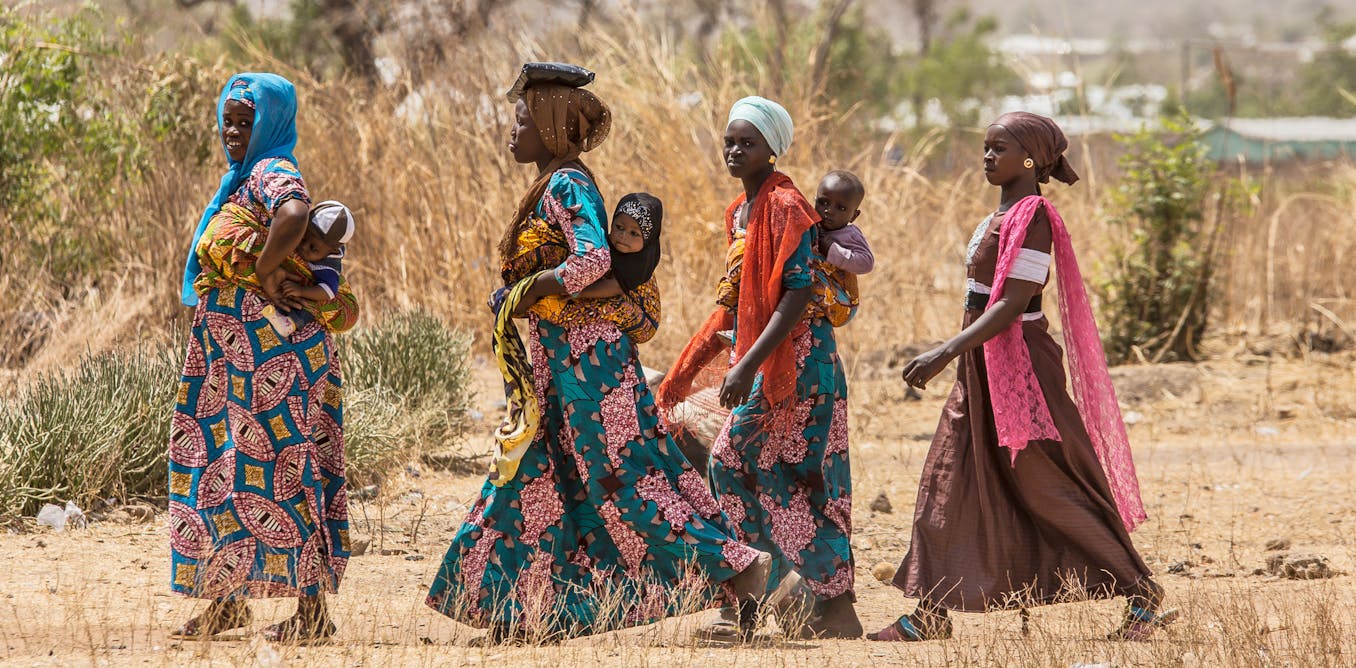
Globally, over a quarter of a million women a year die during pregnancy or childbirth. Sub-Saharan Africa accounts for about 70% of these deaths.
In Ghana, the rate of maternal deaths is 263 per 100,000 births. Although this maternal mortality rate is much lower than the average for African countries (532 per 100,000 births), progress is being threatened by the financial difficulties mothers face accessing maternal healthcare services in the country.
Ghana’s health system has offered free maternal healthcare since 2008 under the Ghana National Health Insurance Scheme. But many families are still compelled to pay for these services.
As researchers in maternal health and health economics, we conducted a study in two regions of Ghana looking at the extra expenses mothers with newborn babies and their households face when seeking maternal healthcare.
We found that about 32% of households spent more than 10% of their total household expenditure on maternal healthcare services – including antenatal services, delivery and postnatal care.
This can strain household’s budgets, affecting the ability to afford other basic needs including food, clothing and shelter. In some instances it may force mothers to forgo treatment due to an inability to pay.
Interviewing mothers
We surveyed 414 mothers in the Ashanti and Upper West regions of Ghana.
Previous research on out-of-pocket payments for maternal health services relied on household survey data.
We interviewed mothers directly as they left the hospital. This allowed us to get more accurate information about the actual out-of-pocket payments they were forced to make.
The Ashanti region is located in the southern half of Ghana and is the country’s second most urbanised and prosperous region. The Ashanti region also has the highest active public national health insurance
membership, of about 2.2 million members.
The Upper West region in the north-west is one of the least urbanised and poorest regions in Ghana. This region has the lowest active health insurance membership at 0.47 million.
We chose these two regions as they represent a diverse range of socioeconomic conditions. A good balance between a relatively prosperous urban area and a poor rural setting.
We collected the data through exit interviews at both public and private healthcare facilities. We wanted to understand the financial challenges faced by mothers across various settings and service providers.
Out-of-pocket payments
Our research found that 97% of mothers made an out-of-pocket payment for antenatal care; 65% paid for delivery services; and 22% paid for postnatal services. These expenses raise questions about the effectiveness of Ghana’s free maternal healthcare policy.
These payments are often informal and linked to coping strategies implemented by health providers in response to delays and inadequate reimbursements, shortages of essential supplies and mothers’ insufficient knowledge of services covered by the free maternal healthcare policy.
Mothers who sought services at private health facilities were less likely to exceed 10% of their household budget on maternal care compared with those who sought care at public facilities. This is not surprising as wealthier people often prefer private facilities due to perceived better quality.
Our study found that non-medical supplies and services account for a significant portion of out-of-pocket payments. These items, including gloves, cleaning materials, food, transportation and accommodation, made up 58% of total out-of-pocket payments.
Patients are often compelled to pay for services and medications, most of which should be provided free of charge.
We found on average, participants paid an equivalent of US$109.30 out-of-pocket payments for maternal healthcare. For 32% of those interviewed, these costs exceeded 10% of their household expenditure. High out-of-pocket payments hinder equitable access to maternal healthcare, a critical issue in developing countries. Addressing this issue is crucial for public health and human rights.
Way forward
To achieve meaningful universal access to maternal care in Ghana, we suggest:
- avoiding the delays in reimbursements to healthcare facilities
- improving the medical supply chain to guarantee reliable supply of medical and non-medical supplies at healthcare facilities
- expanding the free maternal policy benefit package to cover other non-medical expenses such as transport for maternity patients.
Through decisive action, Ghana can safeguard the health and wellbeing of mothers and their families, protecting them from the devastating financial consequences of childbirth.![]()
Edmund Wedam Kanmiki, Research Fellow, The University of Queensland; Cheryl A. Moyer, Associate Professor of Learning Health Sciences and Obstetrics & Gynecology, University of Michigan; Gilbert Abotisem Abiiro, Associate Professor of Health Economics and Policy, University for Development Studies, and Kennedy A. Alatinga, Associate Professor of Social Policy and Health Protection, SD Dombo University of Business and Integrated Development Studies
This article is republished from The Conversation under a Creative Commons license.


